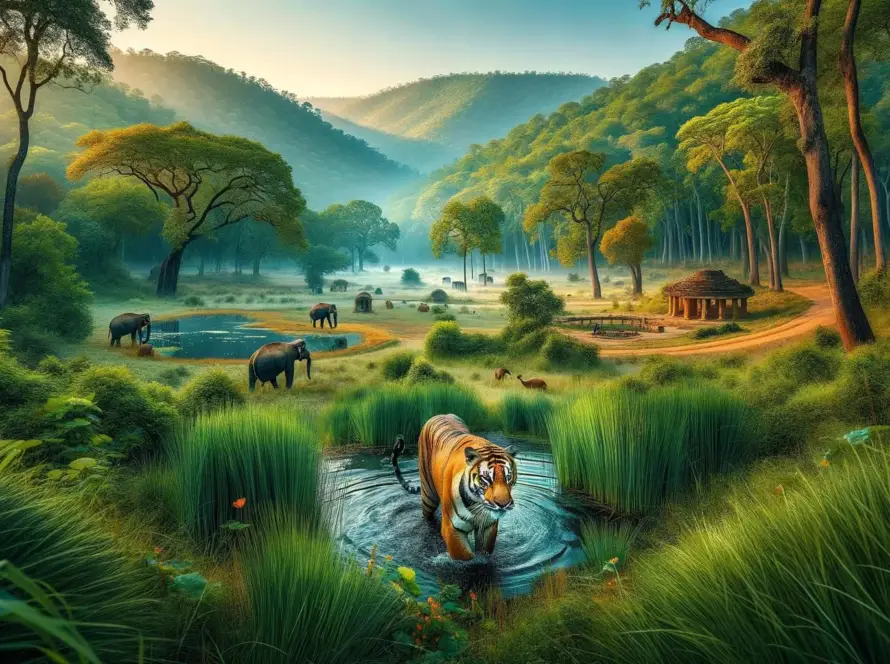Generated by Contentify AI
- Introduction
- The Rich Literary Heritage
- Influential Literary Figures
- Impact on Global Literature
- Modern Indian Literature
- Conclusion

Key Takeaways
- India has a rich literary heritage that has made significant contributions to world literature.
- Indian literature encompasses a wide range of genres and languages, including ancient texts like the Vedas, epics like the Ramayana and Mahabharata, and works by modern authors.
- Indian authors have been recognized globally for their contributions to literature, with writers like Rabindranath Tagore and Salman Rushdie gaining international acclaim.
Introduction
India’s contribution to world literature is both vast and deeply influential, spanning thousands of years and encompassing a variety of languages, themes, and literary forms. From the ancient Vedas and epic poems like the Mahabharata and Ramayana to the lyrical beauty of classical Sanskrit literature, India has offered the world an immense treasure trove of texts that explore the human condition, philosophy, and the divine. This rich literary heritage has not only shaped the cultural and spiritual landscape of the Indian subcontinent but has also left an indelible mark on global literature, influencing countless authors, thinkers, and artists around the world. As we delve into India’s literary contributions, we uncover a tradition that is as diverse as the country itself, reflecting its myriad voices, histories, and perspectives through an array of genres and styles.
The Rich Literary Heritage
India’s literary heritage is one of unparalleled richness and diversity, reflecting the country’s vast array of cultures, languages, and philosophical traditions. This contribution to world literature is rooted in ancient texts such as the Vedas, composed more than 3,000 years ago, which not only serve as the foundation for Hindu religious teachings but also offer insights into the social and historical contexts of early Indian civilization. Following these sacred texts, epic narratives like the Mahabharata and Ramayana emerged, captivating readers with their complex stories of duty, valor, and dharma. These epics, written in Sanskrit, have transcended their original religious and cultural contexts to become global symbols of moral and ethical guidance.
The classical period of Sanskrit literature further solidified India’s contribution to world literature, producing courtly poetry, drama, and philosophical treatises that explored the facets of love, life, and liberation. Works from this era, such as Kalidasa’s Shakuntala and the poetic collections like the Amaru Shataka, showcase the sophisticated aesthetics and profound emotional depth of Indian literature.
Moreover, the rich tapestry of Indian literary tradition is not confined to Sanskrit alone. The emergence of literature in various regional languages such as Tamil, Telugu, Bengali, and Urdu during the medieval period added new dimensions to India’s literary landscape. The Bhakti and Sufi movements, in particular, fostered a remarkable body of devotional poetry that emphasized personal religious experience over ritualistic practices, resonating across cultural and geographic boundaries.
This literary heritage, characterized by its breadth and complexity, has significantly impacted global literature, offering unique perspectives on spirituality, philosophy, and the human experience. Through translations and adaptations, ancient and medieval Indian literature has found new audiences worldwide, inspiring writers, philosophers, and artists with its timeless themes and narrative innovations. As a result, India’s contribution to world literature is not merely historical; it is a living tradition that continues to enrich global culture.
Domain, Web Hosting, and SEO Services
At Shakti Web Solutions, we offer world-class domain registration services at cost-effective prices. Register your domain for business identity and get fully hosted professional email solutions.
Influential Literary Figures
India has been a cradle for some of the most influential literary figures in history, whose works have significantly shaped not just Indian literature but have also made remarkable contributions to the literary world at large. Among these, Rabindranath Tagore stands out as a beacon of Indian literary genius. Tagore, the first non-European to win the Nobel Prize in Literature in 1913, is best known for his poignant poetry and profound short stories. His masterpiece, “Gitanjali,” is a collection of poems that reflects deep spiritual and humanistic themes, resonating with audiences around the globe.
Another monumental figure is R. K. Narayan, renowned for his works set in the fictional South Indian town of Malgudi. Narayan’s narratives, rich with humor and irony, offer insightful glimpses into Indian life and psyche, making him a beloved figure in Indian and international literature.
Kamala Das, a poet and author, is celebrated for her daring exploration of female sexuality and marital issues within the conservative Indian society of her time. Her writing, both in English and Malayalam, broke significant ground in feminist literature, highlighting the complexities of womanhood in India.
Salman Rushdie, with his magical realism and complex narratives, has also significantly contributed to putting Indian literature on the global map. His controversial yet critically acclaimed work, “The Satanic Verses,” alongside “Midnight’s Children,” which won the Booker Prize, showcases the intricate tapestry of India’s cultural and historical identity.
Amitav Ghosh, another luminary, weaves historical narratives with linguistic prowess. His Ibis trilogy, for instance, provides a compelling narrative of the 19th-century opium trade between India and China, highlighting the interconnectedness of human histories and the impact of colonialism.
These authors, among others, underscore India’s contribution to world literature not merely by the breadth of their storytelling but through the depth of their insights into human nature, society, and the intertwining of cultures. Their works transcend geographical and linguistic barriers, inviting readers globally to partake in India’s rich literary heritage. Through their narratives, these literary figures have etched an indelible mark on the global literary canvas, showcasing the universality of Indian themes and the country’s enduring legacy to world literature.
Related articles
Impact on Global Literature
India’s literary output has profoundly impacted the global stage, weaving a rich tapestry of stories, philosophies, and insights that have transcended borders and cultures. This influence is evident in the ways thematic elements from Indian literature have been incorporated into works worldwide, fostering a deeper understanding and appreciation of India’s cultural and philosophical depth. From the philosophical musings in ancient texts like the Bhagavad Gita to the vibrant narratives found in modern novels, the flow of ideas has enriched global discourse, introducing concepts of dharma, karma, and the cyclical nature of life that have found resonance in diverse literary traditions.
Moreover, the narrative techniques and storytelling forms originating from India, such as the use of frame stories in the Panchatantra, have inspired writers around the world, contributing to the evolution of literary forms and genres. The Panchatantra, for example, has been translated into numerous languages, adapting its wisdom and morals to local cultures, thereby illustrating the universality and adaptability of Indian storytelling.
The global literary landscape has also been shaped by India’s diaspora writers, who bridge their heritage and experiences in the West, creating a fusion of perspectives that speak to a wide audience. These writers have played a crucial role in bringing Indian narratives to the forefront of global literature, exploring themes of identity, migration, and the complexities of living between two cultures. Their work has not only broadened the scope of India’s contribution to world literature but has also garnered critical acclaim and international awards, further elevating the prominence of Indian literature on the world stage.
In the realm of poetry, the mystic verses of poets like Kabir and Rumi, though from different cultural backgrounds, share a spiritual kinship that transcends geographical boundaries, highlighting the shared human quest for divine connection and understanding. This shared spiritual heritage has inspired poets and writers across the globe, creating a bridge of mutual appreciation and influence that underscores the universal appeal of India’s literary contributions.
India’s impact on global literature is not just a testament to its rich literary heritage but also a reflection of its ongoing dialogue with the world, a dialogue that has enriched both the source and the recipients. Through translation, adaptation, and inspiration, India’s narratives continue to foster cross-cultural connections, proving that literature can indeed transcend all boundaries to touch the hearts and minds of readers everywhere.
Modern Indian Literature
The landscape of modern Indian literature is as dynamic and diverse as the country itself, contributing significantly to the global literary scene. Reflecting the profound changes within its society, this era encompasses works that articulate the nuances of post-colonial life, the complexities of urban existence, and the ongoing struggles for cultural and political identity. Authors in this period have adeptly used both indigenous languages and English, showcasing their versatility and reaching a wider audience, thereby amplifying India’s contribution to world literature.
Works by writers such as Arundhati Roy, whose debut novel “The God of Small Things” won the Booker Prize, exhibit the richness of India’s storytelling traditions while addressing universal themes of love, caste, and politics. Her narrative style combines lyrical prose with complex structures, presenting a unique blend of the local and the global, a hallmark of modern Indian literature.
Vikram Seth’s “A Suitable Boy,” sprawling over a thousand pages, offers an expansive view of Indian society through the lens of an arranged marriage, weaving together various storylines against the backdrop of a newly independent nation. This novel, among others, illustrates how contemporary Indian writers navigate the vast cultural and linguistic diversity of the country, presenting it with authenticity to the rest of the world.
The rise of diaspora writers like Jhumpa Lahiri, who explores themes of identity, immigration, and the intersection of cultures, further enriches India’s contribution to world literature. Her Pulitzer Prize-winning collection of stories, “Interpreter of Maladies,” delves into the lives of Indians and Indian Americans, bridging cultural divides and offering insight into the complexities of displacement and belonging.
In the realm of poetry, figures such as A.K. Ramanujan have garnered international acclaim for their ability to intertwine classical Indian aesthetics with modern sensibilities, thereby broadening the scope of India’s literary influence. Ramanujan’s work, which spans translations of ancient Tamil poetry to his original English compositions, reflects a deep engagement with India’s rich linguistic and cultural heritage, making his contributions a pivotal part of the modern literary canon.
The genre of non-fiction has also seen notable contributions from Indian writers, addressing issues from history and politics to culture and society. Ramachandra Guha’s “India After Gandhi” is a pivotal work that offers a comprehensive history of the nation’s post-independence years, providing readers worldwide with a deeper understanding of India’s complex socio-political landscape.
As modern Indian literature continues to evolve, it does so by
Conclusion
In exploring the concluding thoughts on India’s contribution to world literature, it becomes evident that this rich literary tradition has not only shaped the cultural landscape of India but has also made a profound impact on global literature. The breadth and depth of India’s literary heritage, from the ancient epics and philosophical texts to the vibrant tapestry of modern Indian literature, underscore a legacy of storytelling that continues to inspire and influence writers and readers around the world. This enduring legacy is a testament to the universal themes and diverse narratives that Indian literature has brought to the global stage, bridging cultural and linguistic divides.
The future of India’s literary contribution remains promising, as contemporary Indian writers, both within the country and in the diaspora, continue to explore and narrate stories that resonate with global audiences. Their works, often a reflection of the complex interplay between tradition and modernity, provide insightful perspectives on the human condition, offering a window into the myriad experiences that define life in India and beyond.
As we look ahead, it is clear that India’s contribution to world literature will persist, fueled by the country’s ongoing cultural dynamism and its writers’ ability to articulate universal concerns within the specificity of their cultural milieu. The global literary community remains eager to embrace the diverse voices and narratives emerging from India, ensuring that its contribution to world literature will continue to be celebrated and cherished.






